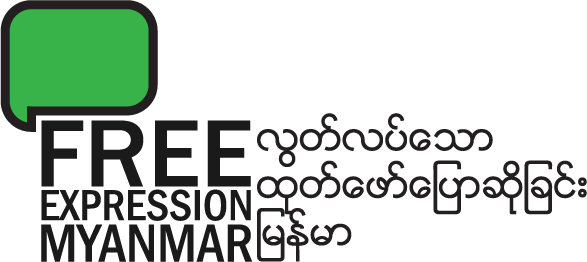New bylaws are opportunity to fix Broadcasting Law flaws
Myanmar’s problematic Broadcasting Law which currently gives the government full control over television and radio should be improved by the Bylaws currently under development to ensure viable channels that are both diverse in content and are protected from government interference.
The Broadcasting Law contains a number of significant flaws previously outlined by FEM which risk creating a government-controlled Broadcasting Council that could award licences to friendly applicants and cancel licences for channels that the government dislikes.
Flaws in the Broadcasting Law will have a significant effect beyond the media. Good broadcasting laws strengthen democracies and governance, deliver higher educational standards, and build tolerance across society.
The Broadcasting Law can be improved with the right Bylaws. In particular, the Bylaws should apply the excellent principles included in Article 4 across all of the problematic provisions in the law. Article 4 of the Broadcasting Law states that the regulation of the broadcasting industry will be based on the principles of freedom of expression, independence, fair competition, pluralism, fairness, objectivity, non-discrimination, and transparency.
Selecting Members of the Broadcasting Council
Articles 9 and 11 of the Broadcasting Law state that the government must include civil society and the public in the nomination of Members of the Broadcasting Council. FEM is concerned that this feedback process will be opaque and arbitrary in nature.The Bylaws for Articles 9 and 11 should conform to Article 4(e) and include proper, detailed, and formal procedures so that the nomination process is open and transparent, and so that civil society and the public know when and how to participate in the nomination process.
Article 12 states that the President will choose the Members with regard to public feedback. FEM is concerned that public feedback may be ignored.The Bylaws for Article 12 should include a framework upon which the President receives the public feedback and makes the decision. They should state that the President makes their decision based on the principles included in Article 4. The Bylaws should also require the President to publish their decision, and reasons why they chose each Member.
These Bylaws would ensure that all decisions are made transparently, according to due process, and that Members are chosen to fulfil the principles of the law, and not the political needs of the government.
Awarding licences
Articles 14(b, n), and 31 to 41 outline the process of awarding broadcast licences. FEM is concerned that licences will be awarded to a narrow group of pro-government allies.The Bylaws should require that all licence applications include specific details on how the applicant would contribute to achieving the principles included under Article 4. The Bylaws should also require that the Council properly consider fulfilment of Article 4 when deciding whether to award a licence, and should publish their decision and justification too.
Sanctions and revoking licences
Articles 14(c, d, e) and 75 to 91 states that the Council will create a Code of Conduct for licence holders and will have the power to impose administrative sanctions and suspend or revoke licences. FEM is concerned that the government will use the threat of sanctions and revoking licences to control the media.The Bylaws should establish a proper, open, inclusive, and transparent process for developing the Code of Conduct. They should also require that the Code of Conduct conforms to Article 4(a, e), namely the right to freedom of expression, media independence, objectivity, and non-discrimination. In particular, the Bylaws should require that any decisions conform to the legal principles of necessity and proportionality. The Bylaws should also require that any decision to suspend or revoke a licence, or apply any other sanction, should similarly conform to Article 4, and should be made public. The Bylaws should allow civil society to submit opinions on the cases under review.
Protecting the media
Article 14(j) states that the Council should protect the rights of licence holders. FEM is concerned that the Council will focus on censuring the media and place insufficient emphasis on protection of the media.The Bylaws for Article 14 should define how the Council will protect the rights of licence holders in accordance with Article 4(a) on freedom of expression. For example, the Bylaws could require the Council to proactively seek to support the media and media workers, if they face legal processes in the courts. The Bylaws could also require the Council publish annual reports on their activities to promote media rights.
မကြာမှီလာမည်!
